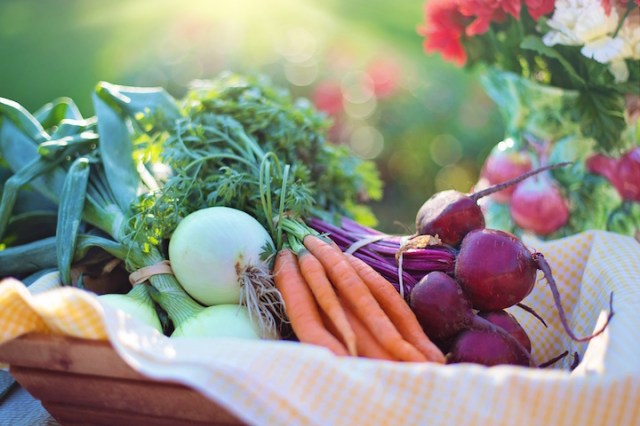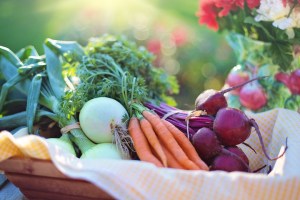While it might seem like an overwhelming challenge at first, finding ways to live sustainably can be as simple as switching one habit or product for another. Small changes can have a big impact, and there are plenty of ways to reduce or change altogether how you consume — and these ideas can help get you started.
Replace Single-Use Plastics
One of the most effective ways to cut down on waste is by swapping single-use plastic items for reusable alternatives.
Starting small, reducing your single-use plastic consumption could be as simple as choosing not to purchase items packaged in plastic, like presliced fruits and vegetables at the supermarket. Single-use plastic bags are banned in some Northeast states (Connecticut, New Jersey, New York and Rhode Island), but bringing your own reusable bags is a good idea wherever you shop.
Plastic packaging is tough to avoid entirely. From shampoo bottles to cleaning supplies, packaging reportedly accounts for 40% of the world’s plastic waste. This is why shopping at sustainable refill stores is an excellent option for reducing packaging waste.
Sustainable refill stores offer a “closed loop” shopping experience where the business itself and the makers of the products sold share the responsibility for reusing or returning packaging. This means there is no unnecessary waste generated. To shop at a refill store, simply bring your own containers (jars, bottles or bags) to refill everyday items like detergent, cleaning supplies, grains, spices and more. Find a refill store in your state here.
Join a CSA
Community Supported Agriculture, known as CSA, is a system that allows consumers to buy shares of a farm’s harvest before the season begins. By doing so, the farm is given the funds it needs to support its growing season up front, and in return, the consumer enjoys a delivery of that season’s harvest, typically on a weekly basis. Think of it like a farmers market that comes to you.
By participating in CSA, you’re not only supporting local farmers, but also helping to limit food waste. As a way to conserve resources, some CSA farms request that you reuse produce containers for the duration of the season so that packing waste can be limited as well.
To search for CSA-participating farms near you, visit LocalHarvest.org and enter your zip code.
Compost Your Organic Waste
Composing is a great way to keep food waste out of landfills, where it can contribute to greenhouse gas emissions. Instead of throwing away food scraps like vegetable peels, coffee grounds or eggshells, composting at home can improve the health of your soil and bring new life to what would otherwise be thrown in the trash.
If you don’t have outdoor space to compost, tossing scraps into a designated compost bin works just as well. In addition, many communities offer composting programs for residents.
Buy Secondhand, Upcycle and Shop Your Closet
Shopping can be fun and even relaxing, but purchasing new items unnecessarily contributes to overconsumption. Instead, try thrifting, vintage shopping or online marketplaces for clothing, furniture and appliances. Buying secondhand opens a treasure trove of unique items that can be repurposed or upcycled, helping to extend the life of products and reducing the demand for new resources.
Feeling the pressure to purchase something new to wear for an event? Shop your closet instead. Finding new, creative ways to wear older items is a sustainable way to refresh your wardrobe without buying anything and helps you to catalogue what you have so you know what’s at your disposal in the future.
Invest in Energy-Efficient Appliances
Energy consumption contributes heavily to carbon emissions. When possible, make switches that use less energy, such as LED bulbs, refrigerators and washing machines. Appliances that use less energy save you money in the long run and reduce your overall environmental impact.
Of course, practicing good habits like turning off lights when not in use and unplugging devices are easy, low-effort ways to reduce your energy use every day.














